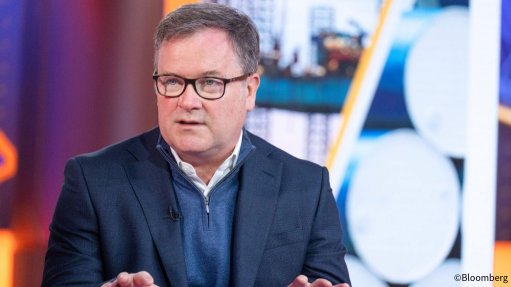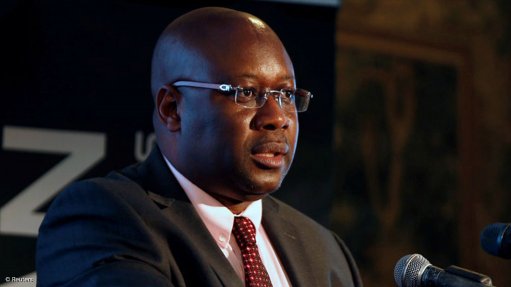African financial institutions will continue to fund fossil fuel projects on the continent
While Africa is part of the global transition to low-carbon energy, the consumption of oil and gas on the continent will increase, at least in the short term. So observed Standard Bank executive energy and infrastructure coverage: East Africa Maina Kigundu at the African Refiners and Distributors Association conference, at the Century City Convention Centre in Cape Town this month.
The decarbonisation plans of international corporations were affecting investment in Africa. There was decreasing investment in the oil sector, but increasing investment was likely in the liquified natural gas (LNG) sector, he reported.
LNG was probably going to become an important energy source for the continent. African demand for LNG was expected to double between now and 2040, with Mozambique and Egypt being potentially the leaders in this sector over this period.
In many African countries, there was the potential to construct product pipelines, including transnational pipelines, to transport LNG and other energy commodities, to reduce dependence on using road transport for their distribution. Phasing out road transport (even if it meant only moving to rail transport, not pipelines) would noticeably reduce Africa’s greenhouse-gas emissions.
Regarding carbon emission reduction technologies, cost-benefit analyses had to be done, before African countries implemented them. Regulatory systems would have a big impact on these developments.
Industries whose carbon emissions were hard to abate could not be ignored, he highlighted. They needed finance to transition to lower-emission technologies. One concept that had been developed was the Transition Bond. These bonds were now gaining traction.
The Africa Finance Corporation (AFC) would continue to fund fossil fuel projects in Africa, assured AFC senior investment associate Shayo Olumide, speaking at the same conference. The AFC was totally African-owned and funded and had total assets of $10.5-billion. So far it had invested in 36 African countries. “We’re focused on African industrialisation,” he stressed. Its five main focus areas were heavy industry; power and renewables; natural resources; transport and logistics; and telecommunications.
“We are going to continue to support this [refining] industry,” he stated. But times had changed and that had to be appreciated. New refinery projects had to include sustainable elements. For example, there had to be reduced flaring of gases; renewable energies had to be used to help power the refinery; and the equipment installed in the refinery had to be more energy efficient. Carbon capture and storage was being looked at by “everyone”, but the technology was not yet established. However, there was a possible option of planting forests near the refineries.
Being able to quantify the carbon emission reductions that such steps would achieve would make it easier to get funding for refinery projects. Various financing options were available. But they all required, as a core element, a strong commitment by the borrower to environmental, social and governance objectives and compliance.
“The demand for energy products is rising,” pointed out Afreximbank director and global head: client relations Rene Awambeng. The continent’s institutions had to continue to finance the rehabilitation and construction of refineries on the continent. In fact, the continent had no choice but to invest in its refineries. “Refining African hydrocarbons outside the continent and then having to re-import the refined products was extremely expensive for the continent.
He cited Niger as an example of a country that refined all its own hydrocarbon production. African countries should copy Niger. And African countries had to make use of their own resources. “In the medium to long term, we have to consume [the energy] that we produce,” he asserted.
“But we have limited [financial] capacity,” he highlighted. “We need to reinforce the capacity of our banks.” African countries should put their money in African banks and not, as they often did now, in non-African banks.
Even so, an African Energy Bank was being created to finance fossil fuel projects across the continent and to fund Africa’s transition to clean energies.
Comments
Press Office
Announcements
What's On
Subscribe to improve your user experience...
Option 1 (equivalent of R125 a month):
Receive a weekly copy of Creamer Media's Engineering News & Mining Weekly magazine
(print copy for those in South Africa and e-magazine for those outside of South Africa)
Receive daily email newsletters
Access to full search results
Access archive of magazine back copies
Access to Projects in Progress
Access to ONE Research Report of your choice in PDF format
Option 2 (equivalent of R375 a month):
All benefits from Option 1
PLUS
Access to Creamer Media's Research Channel Africa for ALL Research Reports, in PDF format, on various industrial and mining sectors
including Electricity; Water; Energy Transition; Hydrogen; Roads, Rail and Ports; Coal; Gold; Platinum; Battery Metals; etc.
Already a subscriber?
Forgotten your password?
Receive weekly copy of Creamer Media's Engineering News & Mining Weekly magazine (print copy for those in South Africa and e-magazine for those outside of South Africa)
➕
Recieve daily email newsletters
➕
Access to full search results
➕
Access archive of magazine back copies
➕
Access to Projects in Progress
➕
Access to ONE Research Report of your choice in PDF format
RESEARCH CHANNEL AFRICA
R4500 (equivalent of R375 a month)
SUBSCRIBEAll benefits from Option 1
➕
Access to Creamer Media's Research Channel Africa for ALL Research Reports on various industrial and mining sectors, in PDF format, including on:
Electricity
➕
Water
➕
Energy Transition
➕
Hydrogen
➕
Roads, Rail and Ports
➕
Coal
➕
Gold
➕
Platinum
➕
Battery Metals
➕
etc.
Receive all benefits from Option 1 or Option 2 delivered to numerous people at your company
➕
Multiple User names and Passwords for simultaneous log-ins
➕
Intranet integration access to all in your organisation


















